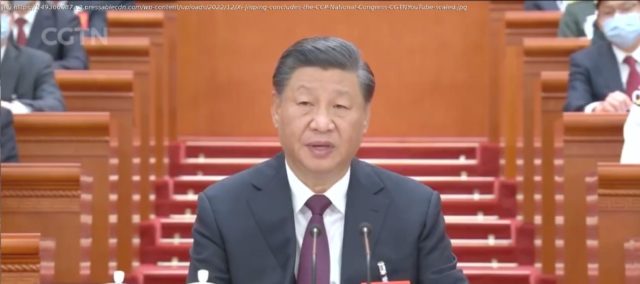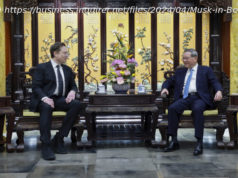Array
It’s been only a month since China’s Xi Jinping strode forth as a master of the universe. He had vanquished his enemies and secured a third term as Chinese Communist Party (CCP) secretary general. The 69-year-old likely was set to rule for life.
He packed the Politburo with lackeys and the Central Committee with supporters. An impressive propaganda apparatus sang his praises. He had clearly eclipsed immediate successors Hu Jintao, who was tossed from the meeting, supposedly for ill health, and Jiang Zemin, who obviously was unhealthy and died last week. Xi collected the party and government titles eschewed by famous “paramount leader” Deng Xiaoping. Only Mao Zedong, who made both the CCP and the People’s Republic of China (PRC) his own, stands above Xi. And who knows? Perhaps Xi will gain that final summit by the time he leaves office.
Or not.
As November was ending, protesters hit the streets in a dozen cities, including Beijing and Shanghai, the country’s political and commercial hearts. Students also turned out at some 80 universities to demonstrate, reviving a long history of activism that had largely disappeared after the 1989 Tiananmen Square crackdown.
The regime quickly dispersed the protesters, offering conciliatory words on COVID, sending students home early from school, and threatening or detaining people who could be identified. However, the regime cannot rest easy. Xi and his enforcers have lost the young, who are frustrated with declining economic liberties, intrusive personal restrictions, lack of public accountability, and destructive zero-COVID policies. Having challenged the regime once, they are likely to return more vocal and active.
And that’s only the latest problem faced by Xi and the CCP. Beijing poses a significant challenge to free peoples around the world, but Americans should feel confident. Despite the obvious problems at home, the U.S. retains important strengths, and the PRC suffers from important weaknesses. Policymakers should bear this balance in mind and avoid mimicking Chinese policies in response.
For instance, despite spending more on internal security than on external defense, establishing a formidable surveillance system, and steadily shrinking the space available for independent expression, the regime just saw its streets fill with discontented protesters. Although initially animated by COVID authoritarianism, people began denouncing Xi, the CCP, and dictatorship. They also called for human rights, democracy, and freedom of expression. So much for Xi’s recent demand that the population shut up and follow him.
China remains a poor nation, despite years of economic growth. Mao and the early revolutionaries imposed totalitarian economic controls, hobbling an otherwise productive people. After Mao’s death, the new leadership, led by Deng, opened up the economy, but Xi is moving in reverse. Even if the PRC ultimately matches the U.S. economy in size, with four times as many people China’s per capita wealth will remain far behind.
This year, the PRC population is beginning to shrink, and it likely will fall behind India next year.






